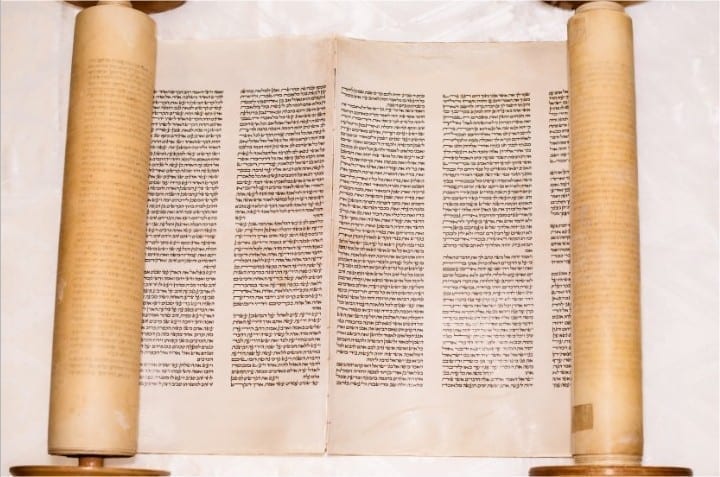In the first of this week’s double Torah Portion, Parshat Behar, we learn of a mitzvah kept only in the land of Israel: Shemittah, the seventh Sabbatical year.
The Torah tells us that when we come to the Land, for six years we may work the fields and gather the crops. And in the seventh year, a complete rest there shall be for the Land, a Shabbat for G-d (Vayikra 25:2-5). All land lies fallow during the year of complete rest for the Land.
What of the produce that naturally grows, on its own, during the seventh Shemittah year? And the resting of the land shall be yours to eat, for you, and for your slave, and for your maidservant; and for your hired worker and for one who resides with you. And for your animal and the beast that is in your land, shall all its crop be to eat (ibid, v.6-7).
Rashi explains that although working the land is forbidden during this year, we are permitted to eat from the fruits of the land that grow on their own. However, one may not act as the landowner (of the land that is “his” during the other six years), rather, all Jews should be equal, and have equal rights, to the produce of the seventh year.
The bounty of the land during the seventh year is ownerless; the land owner can take but not more than anyone else. His workers, any animals, residents, paupers, and any who may desire to take from the fruits of the land can do so.
In essence, the Shemittah year reminds us that there is truly only One Owner, One Master, One Provider, and One Sustainer.
Shemittah: The Great Equalizer.
The land and its fullness are G-d’s; the world and those who dwell therein (Tehillim 24:1).
For six years man lives with the illusion that he is the owner and provider, the strength and might of ‘my’ hand have made me all this wealth! (Devarim 8:17) Then he comes to the Shemittah year…his illusions are shattered and his pride is diminished, as he abruptly remembers that his land is not really his. For G-d is the Owner and Provider, and now those very fields belong to everyone; man, animal, servant, maidservant, rich and poor alike.
And isn’t that the message of Mattan Torah (the giving of Torah), which was given to us on Mt. Sinai, in the desert?
In the open vastness of the Wilderness of Sinai, at the foothills of one small mountain, in the middle of no man’s land, G-d betrothed the Jewish nation and gave us the Torah.
For just at the Land ultimately belongs to all, so too, does the Torah belong to us all.
And you shall be for Me a kingdom of priests and a holy nation… You shall, (all of you individually and all of you collectively), be to Me, G-d, a holy nation. For the whole earth is Mine (Shemos 19:5-6).
As we stood there, at the foothills of Mt. Sinai, on the cusp of spiritual freedom, ready to accept the Torah, Hashem charged us with the task to be a holy nation to Him, to be a kingdom of priests, and to always remember that the whole earth is His.
For six days – and for six years – we may work the land, till and sow the land, plant and harvest the land… But on the seventh day, and in the seventh year, we take a step back and remember: None of this is mine – it is all, rather, a Shabbat to G-d (Vayikra 25:2,4).
Reuven and Shimon came to R’ Chaim Volozhin (1749-1821) arguing over a piece of property that each claimed belonged to them. After listening to both sides present their cases, R’ Chaim said, “Come, let us go to the field. I would like to see for myself the actual property in question to better understand your arguments.”
Reuven and Shimon were puzzled. What will looking at the property help, they wondered. Once there, R’ Chaim said, “Ok, Reuven, let me hear what you have to say.” Reuven re-told his side of the story. R’ Chaim then turned to Shimon and asked him to present his side of the story. After they had both presented their side, R’ Chaim said, “Now let me hear what the field has to say.” As Reuven and Shimon looked on in astonishment, R’ Chaim Volozhin bent down and put his ear near the ground to listen! When he stood up, Shimon was smiling and asked, “Nu, so what does the ground have to say?”
With a serious look, R’ Chaim replied, “The ground said, ‘This one claims that I belong to him for this reason, and that one claims that I belong to him for that reason. The truth is, in no time at all, they will both belong to me!’”
Lest we forget Who is in charge, it behooves us to step back, and as the prophet tells us, Lift your eyes to the heavens, and see Who created this
(Yeshayahu 40:26).
For the beloved, unique, and holy Land that is His, we give thanks; for the cooling, life-giving waters of Torah that is His, we give thanks; and for our very lives, and the bounty within and all around us, for all of this, we give thanks upon thanks.
Shabbat Shalom





